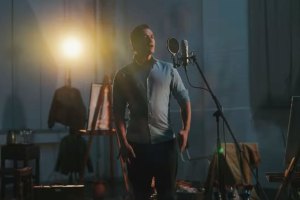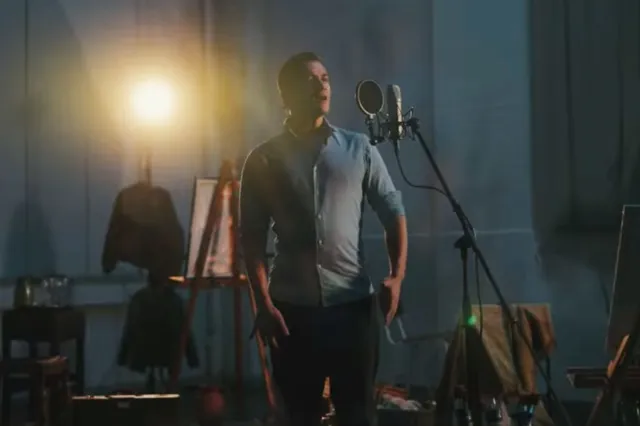”Duet for One” at the Orange Tree Theatre – review
The great British cellist, Jacqueline du Pré, was just 28 when she had to stop performing, having been diagnosed with multiple sclerosis. This degenerative decease of the central nervous system took du Pré from us far too early at 42, but not before devastatingly ripping away her ability to play her beloved instrument.
Tom Kempinski’s 1980 play is inspired by du Pré’s story, exploring the grief and torment felt by a renowned musician that loses the ability to play. Here, Stephanie (Tara Fitzgerald) feels as though she is losing her very identity and her purpose. Most of all she is losing the transportive qualities that music provides her in a world where relationships, past and present, seem to dominate her life.
Stephanie is attending therapy at the request of her composer husband, David. Her combative style and abrasive manner towards Dr Feldmann (Maureen Beattie) is born from fear, denial and anger of what she calls the “creeping paralysis” that is looming large in her life.
Kempinski creates a rather pedestrian structure to this two-hander, in which we see six back-to-back therapy sessions. Dramatically speaking there is little story development but the tone of each scene is certainly varied. As the weeks in therapy progress, Stephanie becomes increasingly belligerent and irrational – physically she deteriorates. As she becomes more and more confrontational, Dr Feldmann loses patience, and rather than passively listening, makes herself a worthy opponent and directly challenges her patient.
Between each therapy session, Gabriela Opacka-Boccadoro hauntingly plays the violin up in the balcony of the Orange Tree. Oliver Vibrans’ score is at turns both urgent and heart rendering. It anchors proceedings to music far more than Kempinski’s words alone. As Fitzgerald enters into the space, she stares at the passionately playing violinist – perhaps with heartfelt longing, or maybe with an angry rage.
Fitzgerald’s penetrating voice fills the small Orange Tree space. Her Stephanie is obstinate, she admits that she “never agrees with anyone, on principle”. She’s also vulnerable and “fears helplessness and dependence on others”. It’s a tough role to harness and Fitzgerald doesn’t always manage it. This is not a character that is easy to like or to even sympathise with. There are moments where Fitzgerald brilliantly pauses as she grapples with her feelings and how she should express them. Her fits of rage have a tendency to become frustratingly inexpressive however.
Beattie’s Dr Feldmann is calm and assured and appears to be in full control at all times. It is therefore even more shocking when Beattie brilliantly explodes with anger herself. It’s unlikely behaviour for a therapist towards her patient, but is a hold-your-breath moment all the same.
Richard Beecham directs his company of two pretty statically. The face-off of therapist and patient is heightened with them spending the entire evening sat opposite one another, intensely staring. A small revolve gently and almost imperceptibly moves them 360 degrees repeatedly.
Stephanie believes that “music is the purest expression of humanity” and speaks of it as something almost God-like. When she talks of giving her violin away, it as if she has had to hand over her own child. Her music defines her and coming to terms with life without it is almost impossible to bear for her. But when the character is this harsh and the portrayal of her this unpitying, it is hard to feel much sympathy for her.












